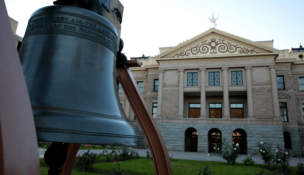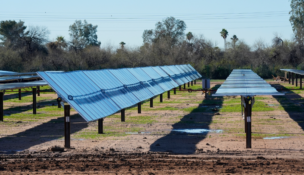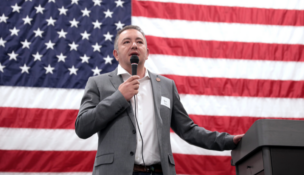Campbell offers comprehensive plan to reduce gun violence
Gary Grado//January 9, 2013//[read_meter]
[caption id="attachment_54687" align="alignleft" width="320" caption="Arizona House of Representatives Minority Leader Chad Campbell, D-Phoenix, speaks as he offers a plan to push a $100 million school and community safety plan that...

















